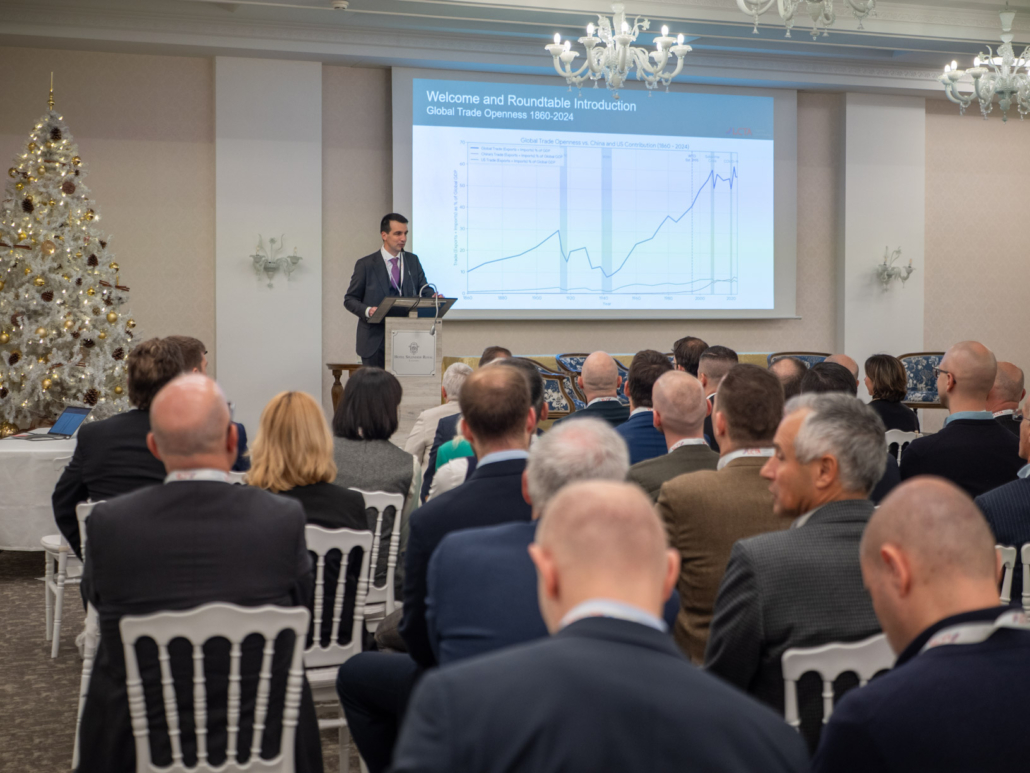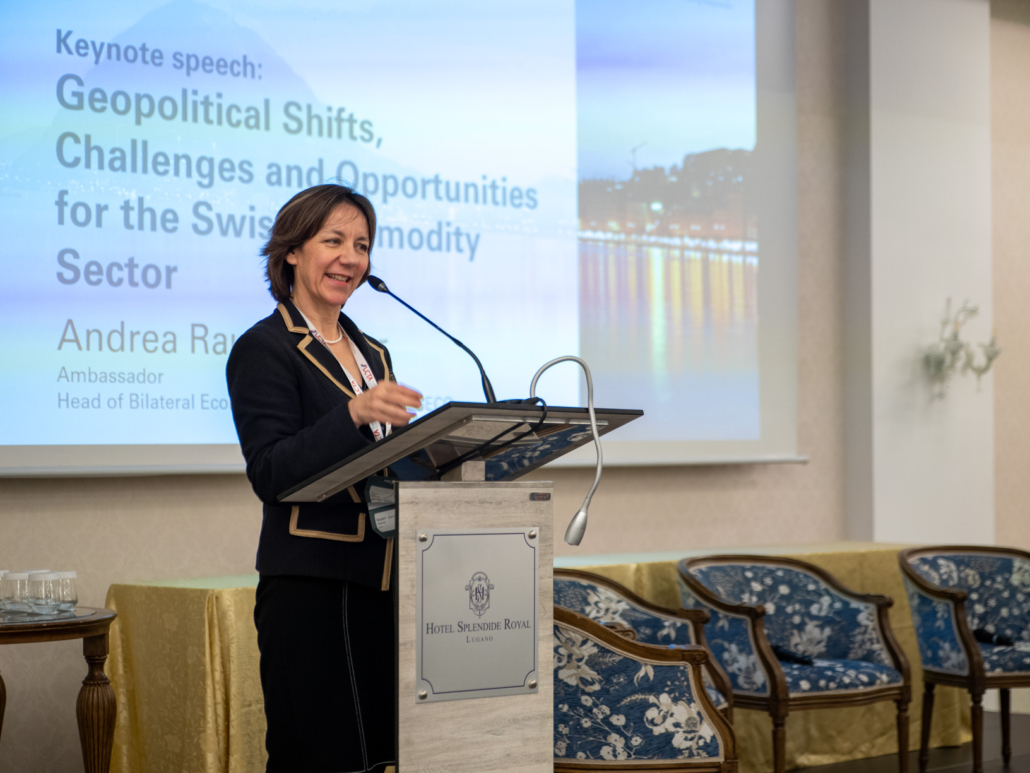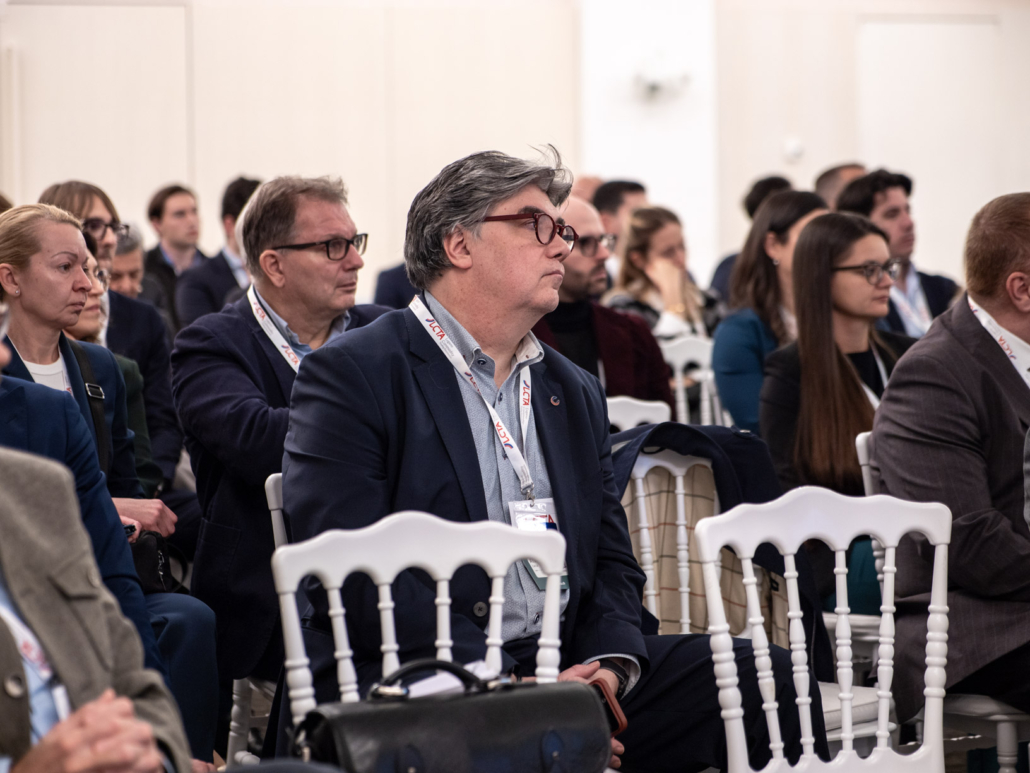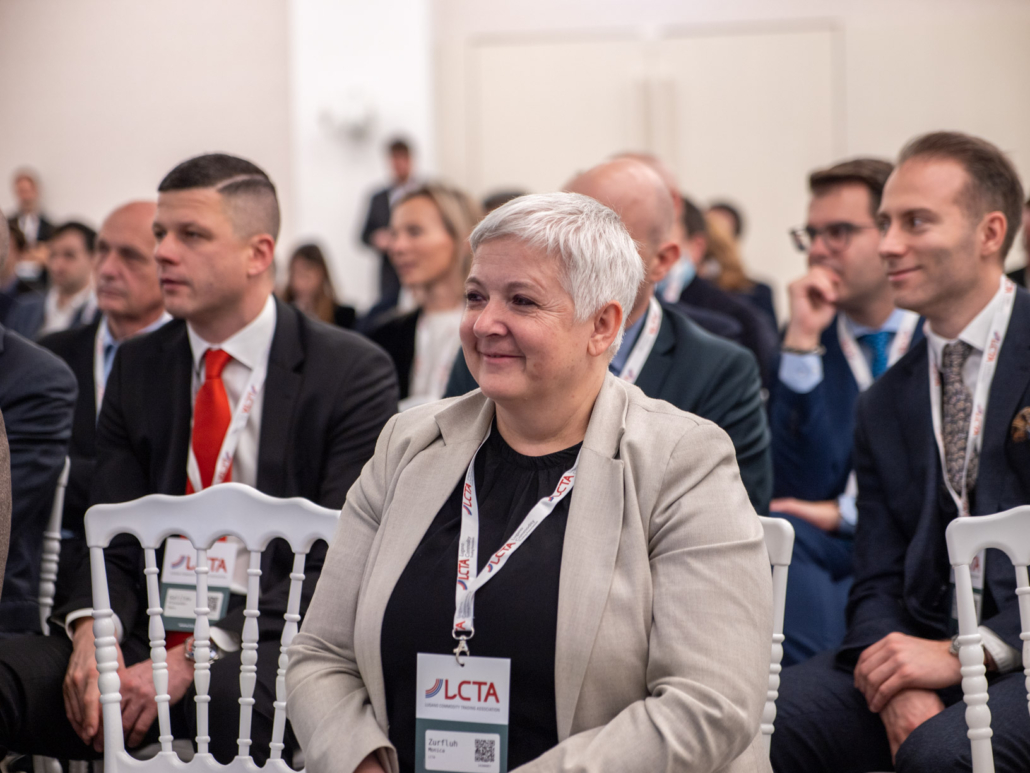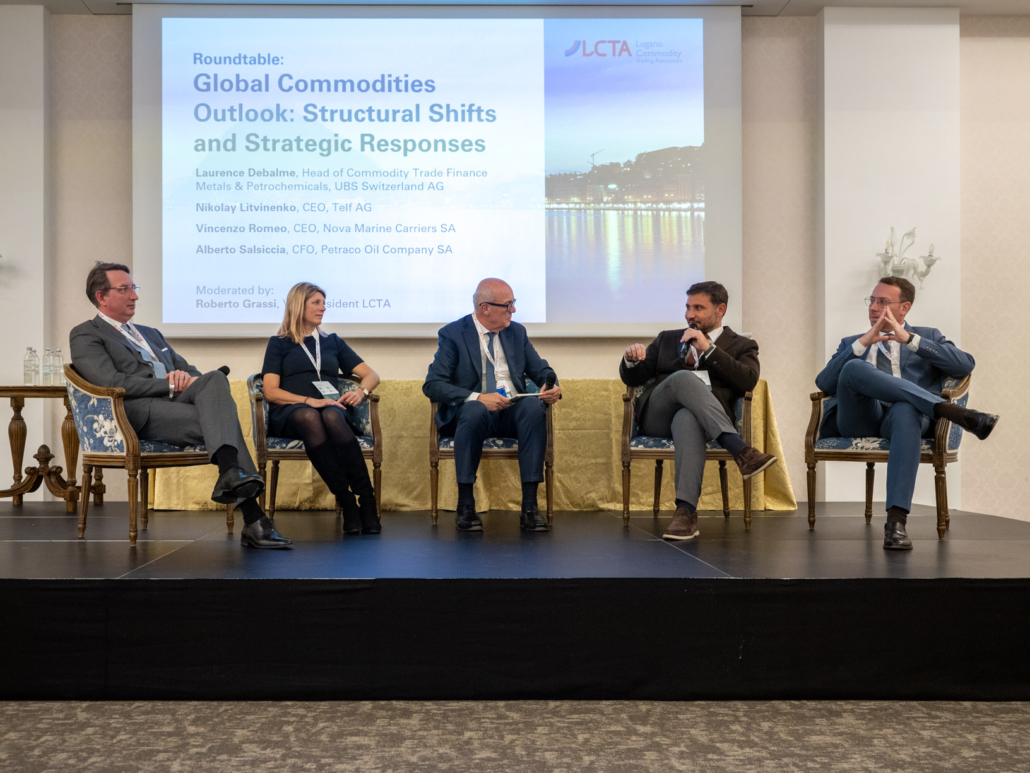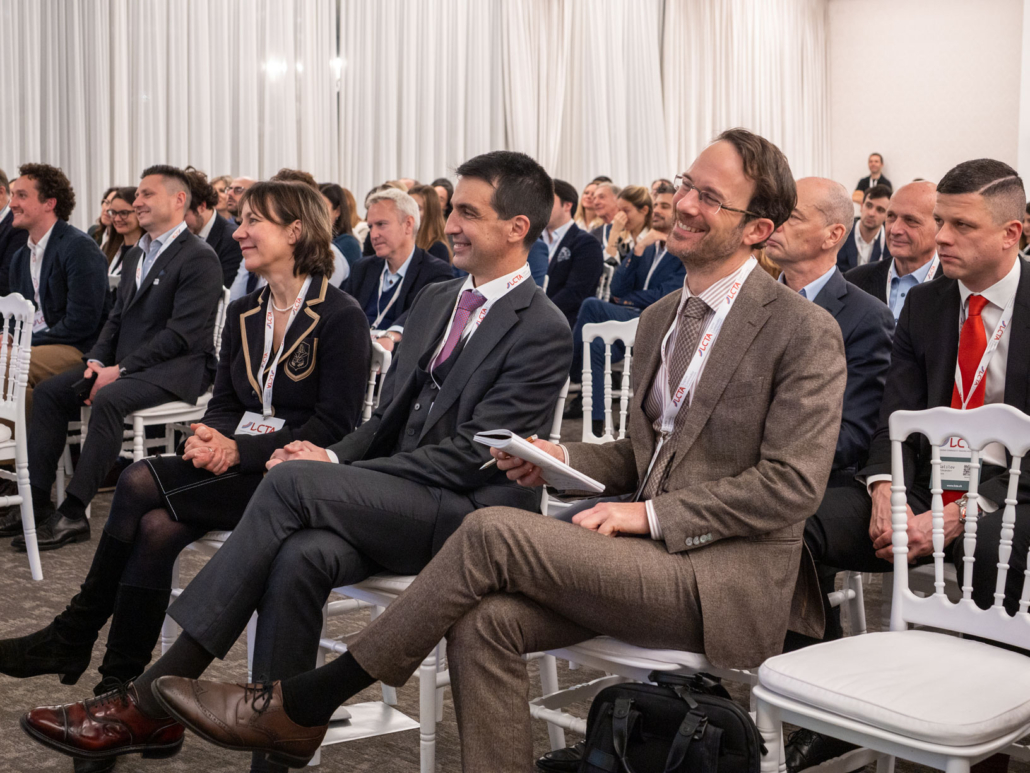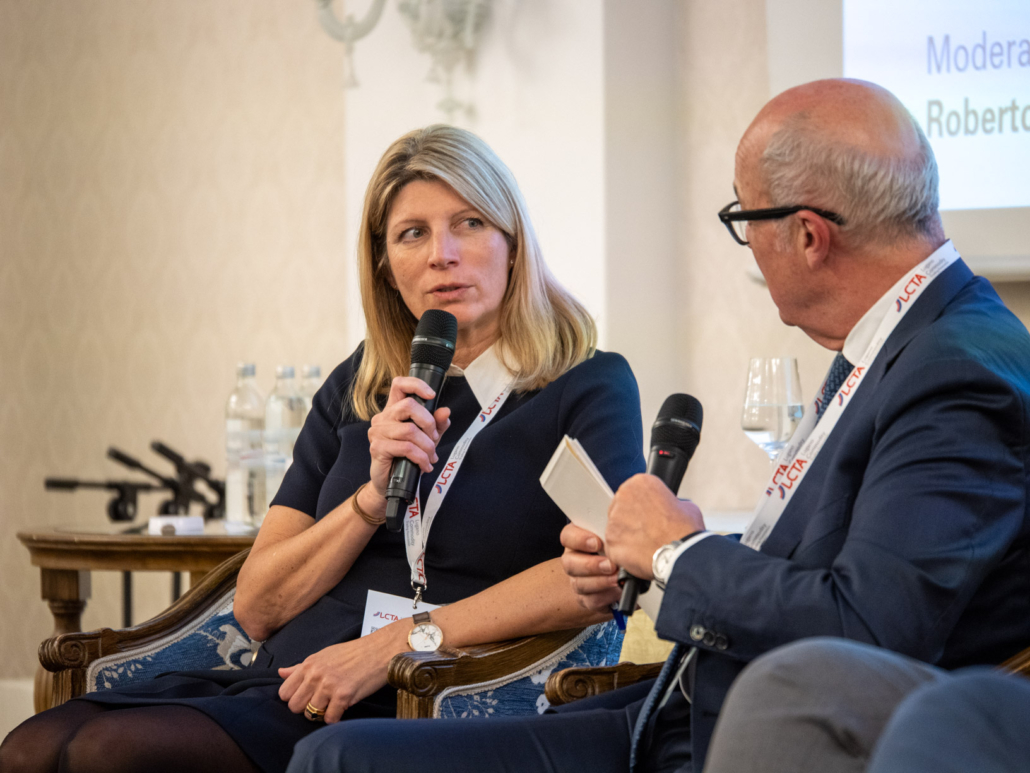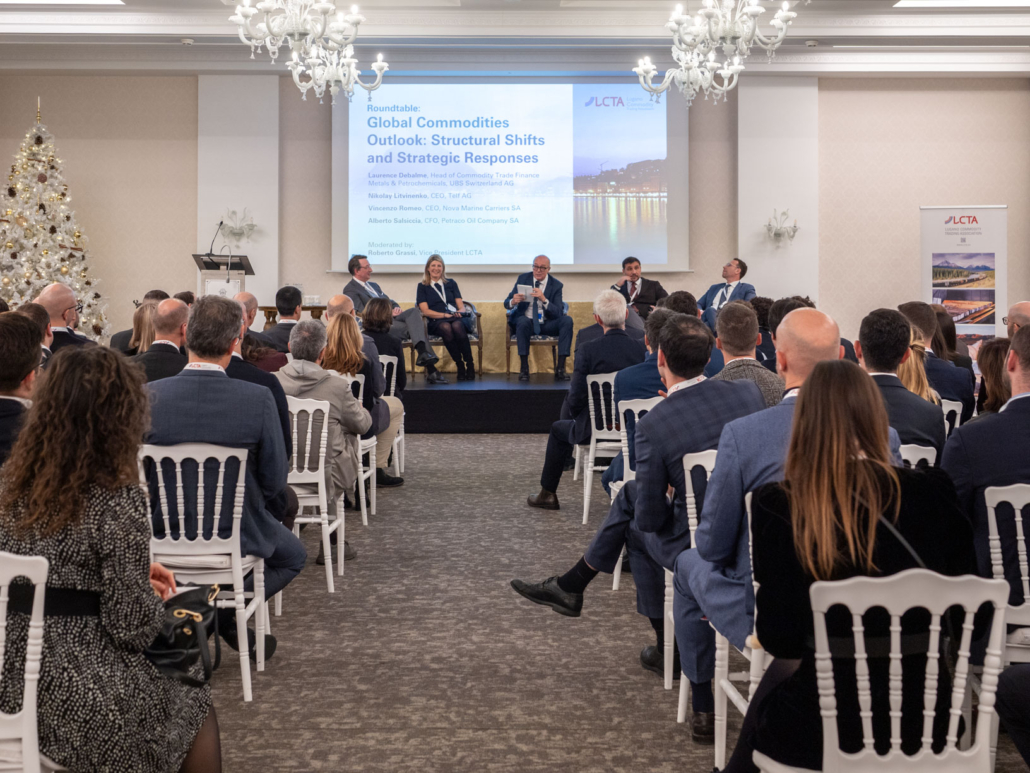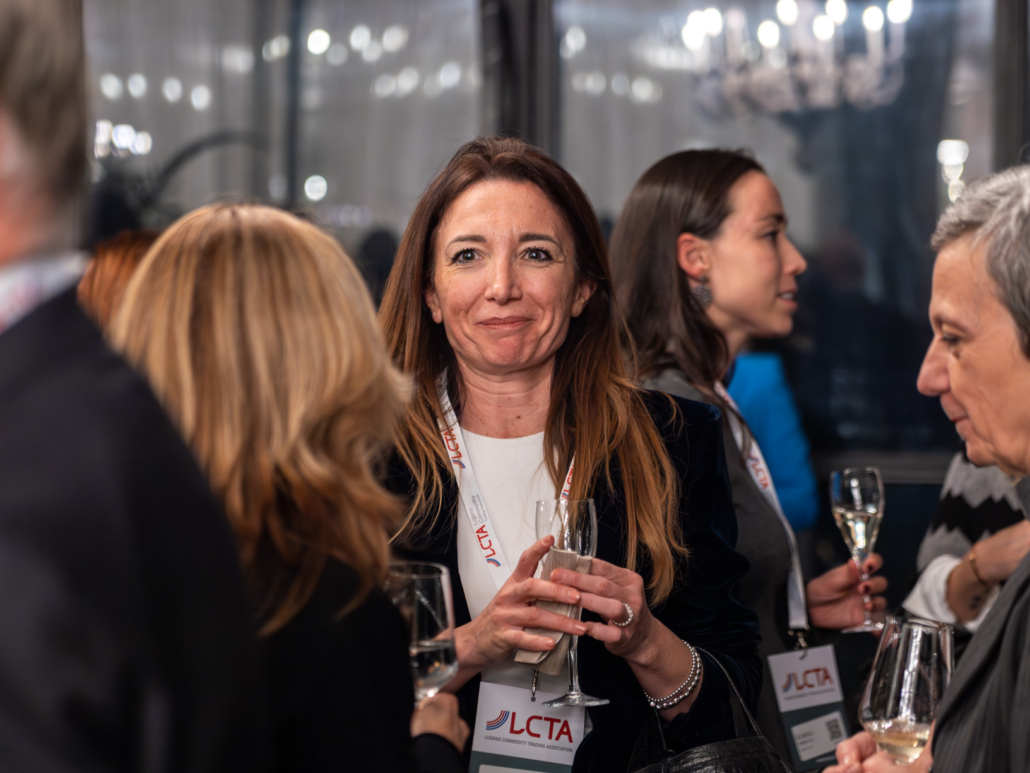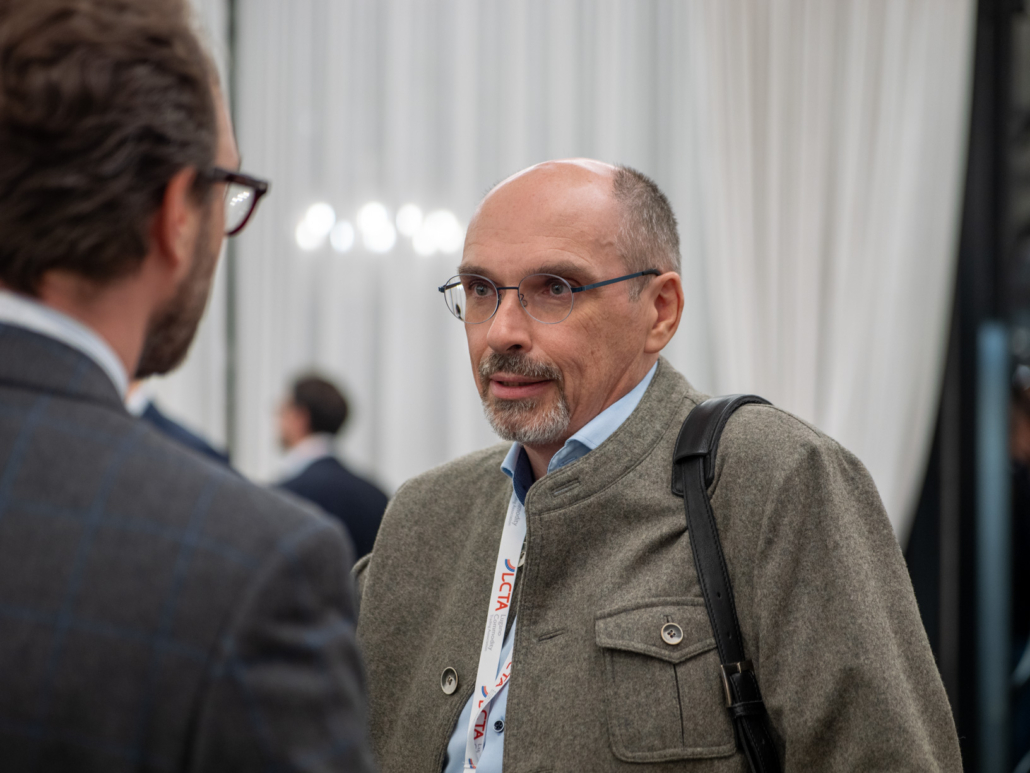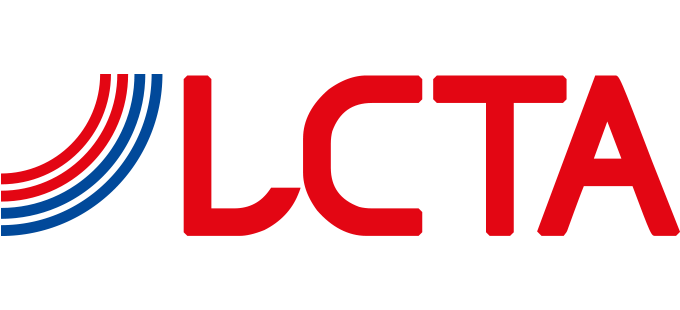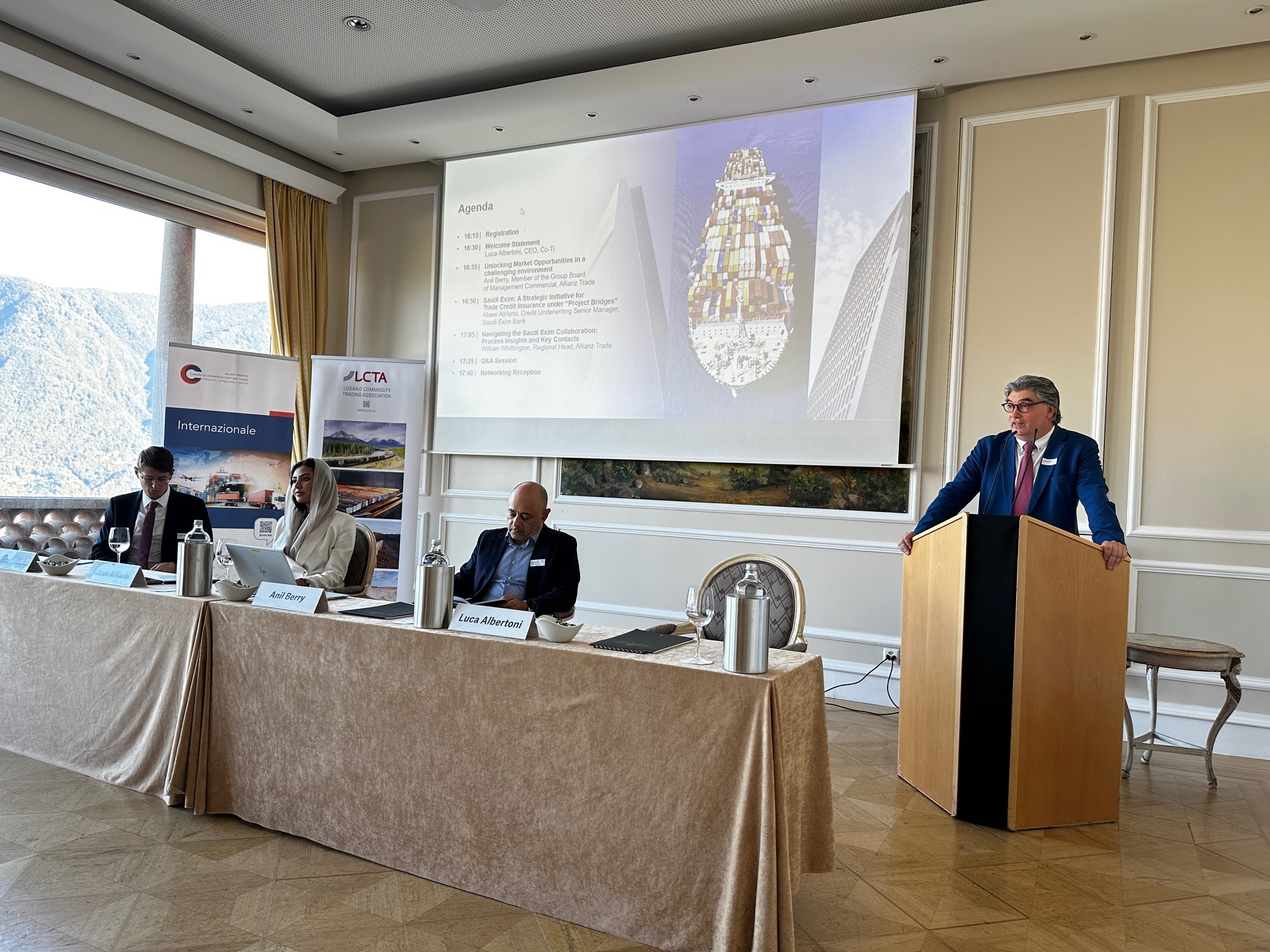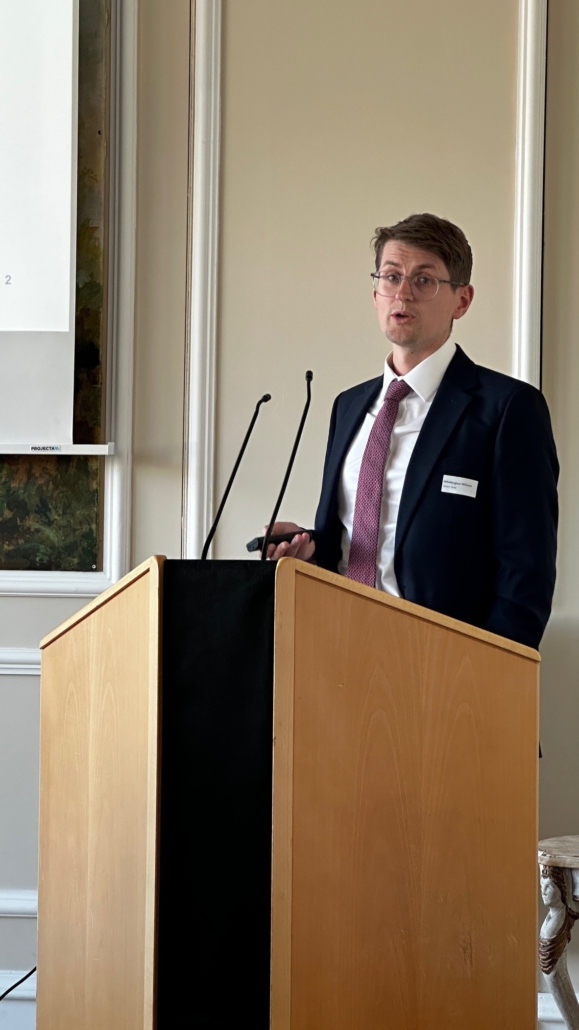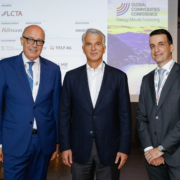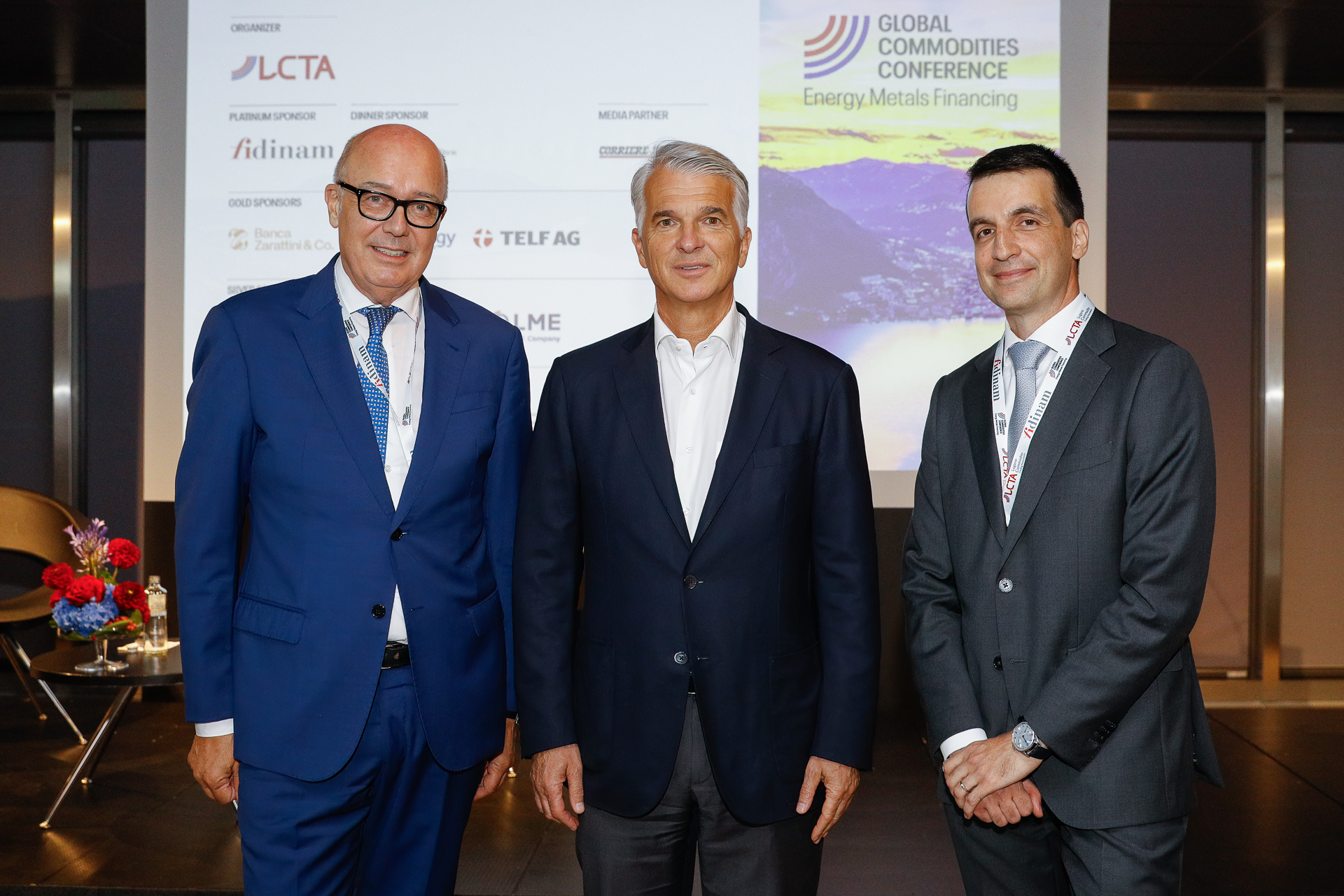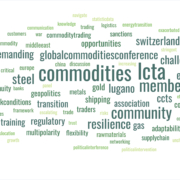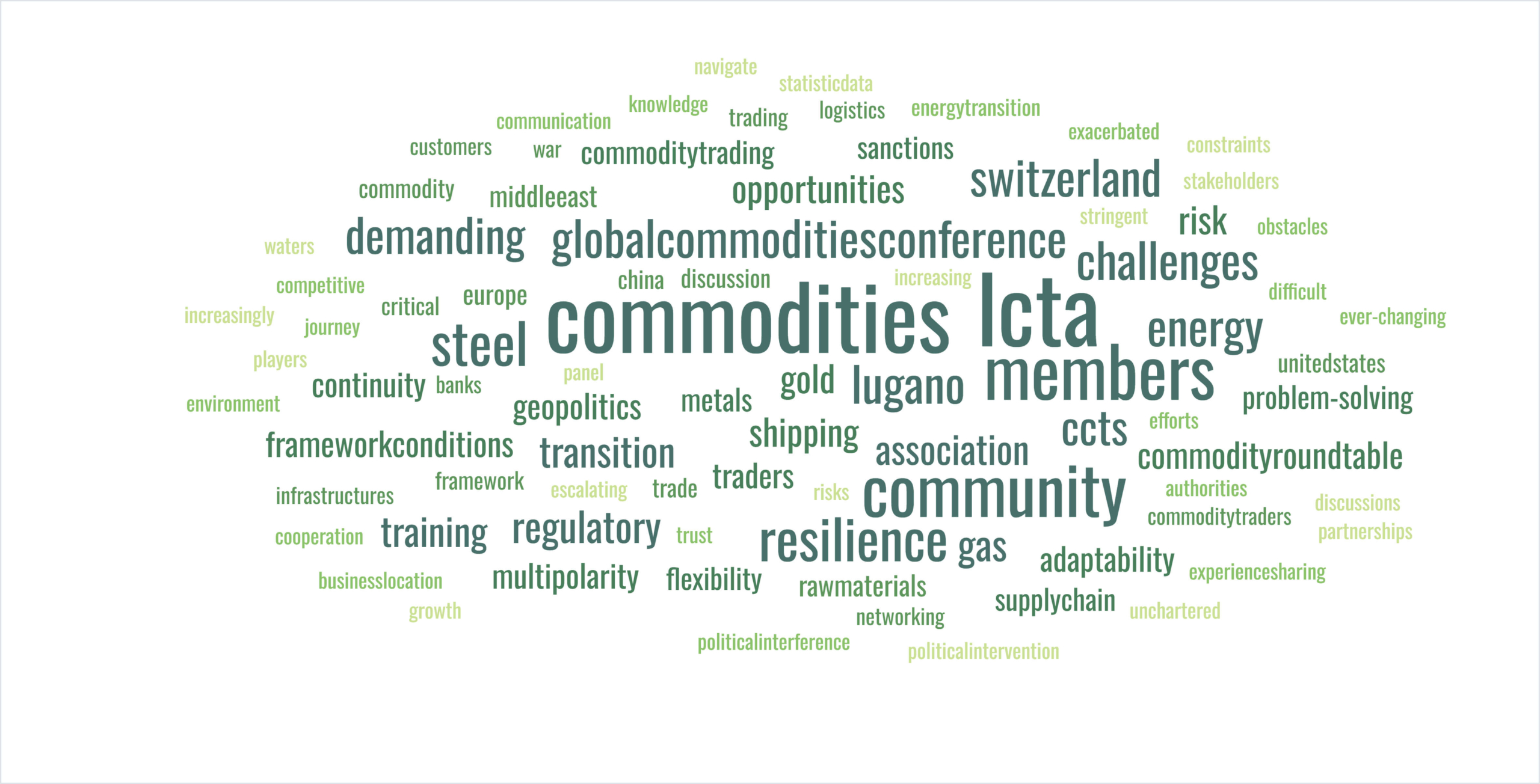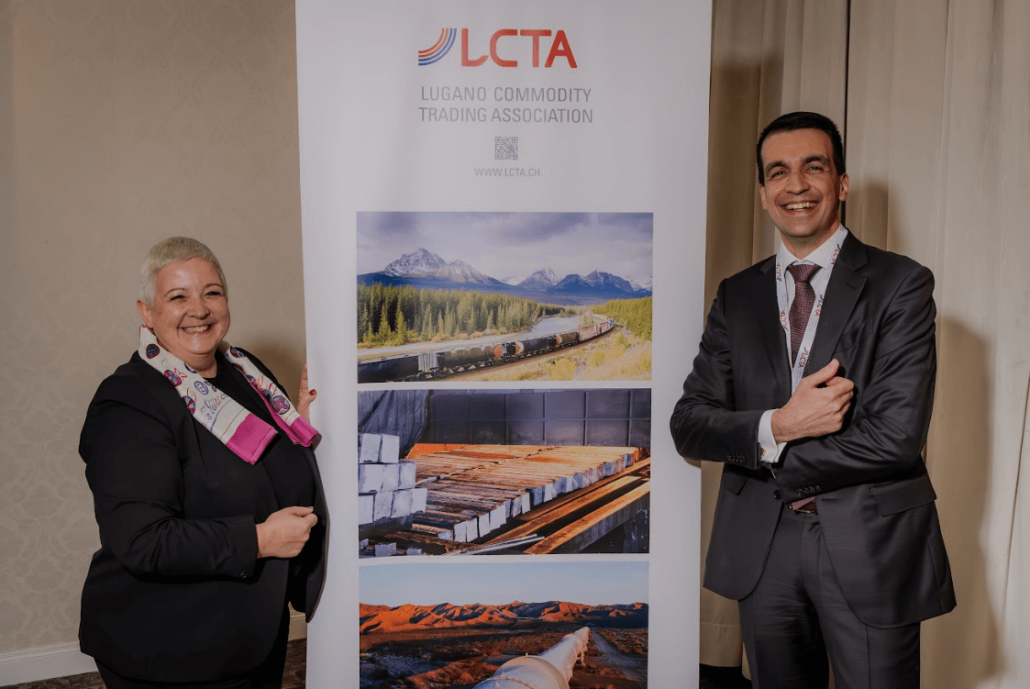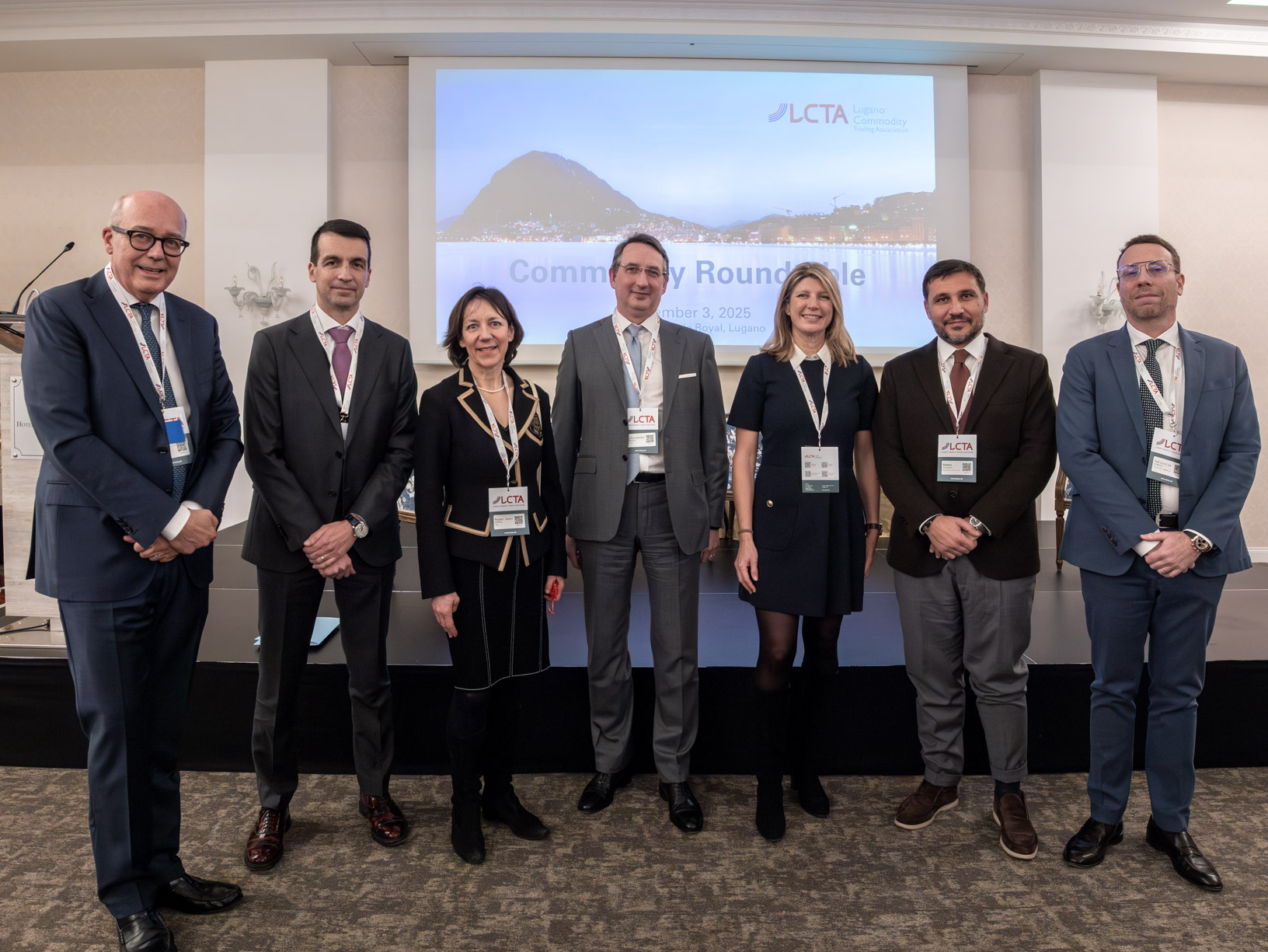
In un anno segnato da frammentazione geopolitica, iper-regolamentazione e mutamenti di potere nella filiera globale, l’Assemblea generale annuale e la Commodity Roundtable di LCTA a Lugano hanno offerto uno sguardo schietto sulle forze che stanno ridisegnando il mondo del commercio di materia prime.
I leader del settore hanno analizzato un’economia globale al massimo dell’interdipendenza ma sempre più vulnerabile, hanno messo in guardia dai rischi di una trappola competitiva auto-inflitta in Europa e sottolineato come la vera leva geopolitica non sia più l’accesso alle commodity, bensì la capacità di trasformarle. Dal ruolo evolutivo della Svizzera come polo di stabilità, al lento progresso della digitalizzazione fino alla persistente centralità del dollaro, la tavola rotonda ha fotografato un settore che vive la (scarsa) volatilità e la lentezza dei cicli non come una rottura, ma come il nuovo ritmo operativo.
Dopo una sessione a porte chiuse dell’Assemblea Generale – durante la quale il Comitato esecutivo di LCTA è stato rafforzato con l’ingresso, approvato dall’Assemblea, di Laurence Debalme, Head of Commodity Trade Finance Metals & Petrochemicals di UBS Switzerland AG, in qualità di nuova rappresentante della Banca, la conferma dell’intero Board e la presentazione dei risultati del sondaggio interno svolto tra settembre e ottobre 2025 – la Commodity Roundtable di LCTA del 3 dicembre 2025 all’Hotel Splendide Royal di Lugano si è aperta con un taglio marcatamente riflessivo e strategico. Riunendo 130 partecipanti, l’evento ha intrecciato analisi geopolitiche di alto livello con osservazioni operative concrete, mettendo in luce la crescente complessità in cui operano oggi i trader di materie prime.
Quello che è emerso non è stato un convegno tradizionale, ma una conversazione tra professionisti che si muovono nel punto di intersezione tra mercati, geopolitica e regolamentazione. Il messaggio centrale scaturito dalla discussione è che l’economia globale si trova a un punto di svolta.
Con l’apertura commerciale che si attesta attorno al 60% del PIL mondiale, nel suo intervento introduttivo il presidente LCTA Matteo Somaini ha posto una domanda cruciale: stiamo assistendo al picco dell’interdipendenza globale o a un equilibrio fragile, esposto a shock geopolitici? In questo scenario, i trader non sono più meri intermediari neutrali; sono diventati veri e propri navigatori di sanzioni, asimmetrie regolatorie, interruzioni delle catene del valore e alleanze politiche in rapido mutamento.
Il ruolo della Svizzera è stato analizzato con particolare chiarezza. L’ambasciatrice Andrea Rauber Saxer, Capo della Divisione Relazioni economiche bilaterali della SECO e responsabile del SECO Commodities Network, ha sottolineato che, sebbene l’OMC governi ancora la maggior parte del commercio globale, la sua incapacità di adattarsi ha spinto molti Paesi verso soluzioni bilaterali e multilaterali. Per una Nazione come la Svizzera – storicamente ancorata a un quadro multilaterale stabile e a regole condivise – questa crescente frammentazione rappresenta un contesto complesso, tanto più in un momento in cui la rivalità strategica tra Stati Uniti e Cina ridisegna i mercati e trasforma i minerali critici in strumenti di leva geopolitica. I trader, ha osservato, si trovano “nel mezzo di questo grande gioco”. In risposta, la Svizzera ha rafforzato e diversificato le proprie partnership: aggiornando gli accordi bilaterali con l’UE e rafforzando le relazioni con India, Thailandia e Mercosur. In un mondo segnato da volatilità e fratture geopolitiche, la neutralità, la coerenza giuridica e l’affidabilità istituzionale diventano garanzie essenziali per industrie e operatori globali.
La riconfigurazione dei flussi di materie prime è stata il cuore del dibattito successivo. Moderato dal vicepresidente LCTA Roberto Grassi, il panel composto da Laurence Debalme (UBS Switzerland AG), Nikolay Litvinenko (Telf AG), Vincenzo Romeo (Nova Marine Carriers SA), Alberto Salsiccia (Petraco Oil Company SA), ha osservato che il commercio globale si comporta come l’acqua: trova sempre una via per aggirare gli ostacoli. La perdita delle esportazioni di grano ucraino, ad esempio, non ha paralizzato i mercati cerealicoli; ha semplicemente ridiretto l’offerta verso altri produttori, al prezzo di rotte più lunghe, noli più elevati e volatilità persistente. Per governi e consumatori, queste interruzioni sono destabilizzanti; per i trader, invece, la volatilità rappresenta opportunità.
La competitività europea e il peso della regolamentazione unilaterale hanno suscitato discussioni particolarmente schiette. I relatori hanno espresso preoccupazione per la crescente asimmetria normativa tra l’Europa e il resto del mondo. Strumenti di carbon pricing, obblighi di sostenibilità e requisiti settoriali riflettono l’ambizione politica europea, ma impongono costi non sostenuti dai concorrenti esteri. Questo squilibrio accelera la deindustrializzazione del continente senza produrre riduzioni significative delle emissioni globali. È emerso con forza che le politiche climatiche devono essere coordinate a livello internazionale; in caso contrario, l’Europa rischia di “risolvere” il problema delle emissioni esportando produzione e inquinamento.
Particolarmente incisiva è stata l’analisi del segmento midstream delle catene globali delle commodity: non è l’accesso alle materie prime a definire la leva geopolitica, bensì il controllo della capacità di trasformazione. Il cobalto estratto in Congo o il rame proveniente dal Cile possono essere acquistati sul mercato internazionale; il vero collo di bottiglia strategico risiede però nelle fasi di raffinazione, fusione e conversione chimica. A differenza di alcuni Paesi, l’Europa manca di capacità industriali midstream, ed è proprio in questo ambito che devono essere indirizzati gli investimenti. La conseguenza è chiara: nel settore delle materie prime, l’influenza geopolitica passa dagli impianti di lavorazione, non dai pozzi o dalle miniere. I relatori hanno sostenuto che il prossimo decennio di politica industriale dovrebbe concentrarsi meno sull’estrazione e più sulla riconquista delle capacità di trasformazione essenziali per le industrie tecnologiche.
Sul fronte valutario, vi è stato consenso nel ritenere che le discussioni sul declino del dollaro restino prevalentemente teoriche. Sanzioni e accordi bilaterali hanno favorito un maggiore utilizzo di valute alternative come yuan o dirham determinate rotte, ma si tratta di aggiustamenti tattici, non strutturali. Il dollaro continua a rappresentare l’ancora del pricing delle commodity, dei mercati finanziari e dei sistemi di gestione del rischio. Inoltre, un dollaro debole tende a favorire i trader, sostenendo prezzi più elevati delle materie prime e dunque maggiori ricavi. Il verdetto condiviso: oggi non esiste un’alternativa credibile al dollaro.
Sul fronte tecnologico, il quadro è composto da dinamismo e inerzia. L’intelligenza artificiale sta avanzando rapidamente in ambiti operativi come la manutenzione predittiva delle navi, il rilevamento di anomalie nei modelli di rischio e l’automazione dei processi di riconciliazione. Tuttavia, la digitalizzazione più ampia del commercio resta al palo: le polizze di carico elettroniche rappresentano ancora una quota marginale delle spedizioni globali. Banche, assicurazioni e autorità doganali continuano a privilegiare la documentazione cartacea per l’assenza di standard legali e tecnologici uniformi. Il settore delle commodity, nonostante scala e sofisticazione, resta quindi ancorato a sistemi analogici che sono cambiati poco nel corso dei decenni.
Oltre all’agenda ufficiale, la dimensione relazionale della tavola rotonda ha avuto un ruolo centrale. Davanti ai 130 partecipanti, le discussioni sono state schiette e spesso personali. I relatori hanno condiviso non solo dati e scenari, ma anche massime, lezioni professionali e riflessioni sulla gestione delle crisi. Un tema ricorrente: l’importanza delle relazioni. Come ricordato più volte durante l’evento, nei momenti di crisi bisogna già conoscere le persone in grado di risolverla.
La tavola rotonda si è conclusa con una valutazione sobria del mondo verso cui ci stiamo muovendo. I mercati delle materie prime entrano in un’epoca definita più dalla frammentazione che dall’integrazione, più dalla volatilità che dalla stabilità, e dove la capacità di trasformazione conta più dell’estrazione. Il ruolo della Svizzera come polo neutrale, prevedibile e sofisticato appare più prezioso che mai. Per le aziende presenti, la sfida non è ricostruire il mondo di ieri, ma adattarsi a un nuovo sistema in cui mutamenti geopolitici, divergenze regolatorie e trasformazione tecnologica saranno le forze economiche dominanti del prossimo decennio.
Rassegna fotografica

